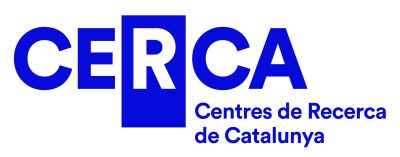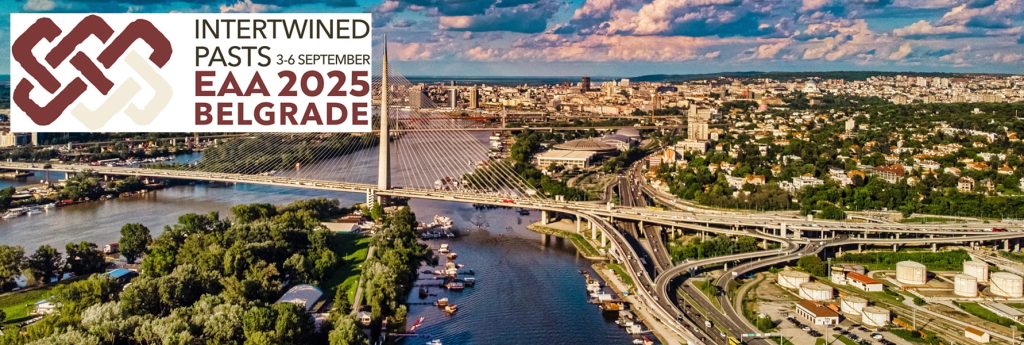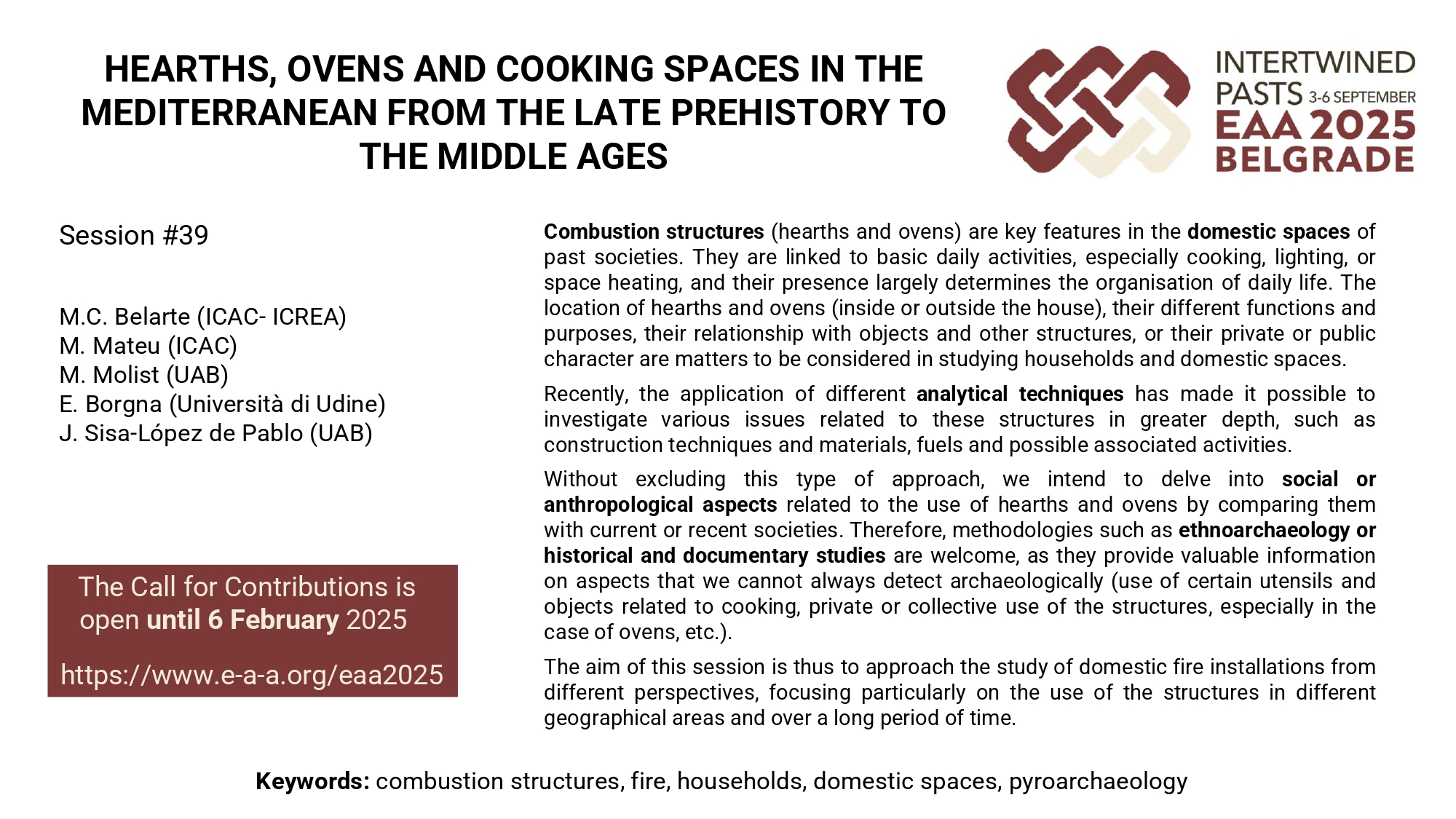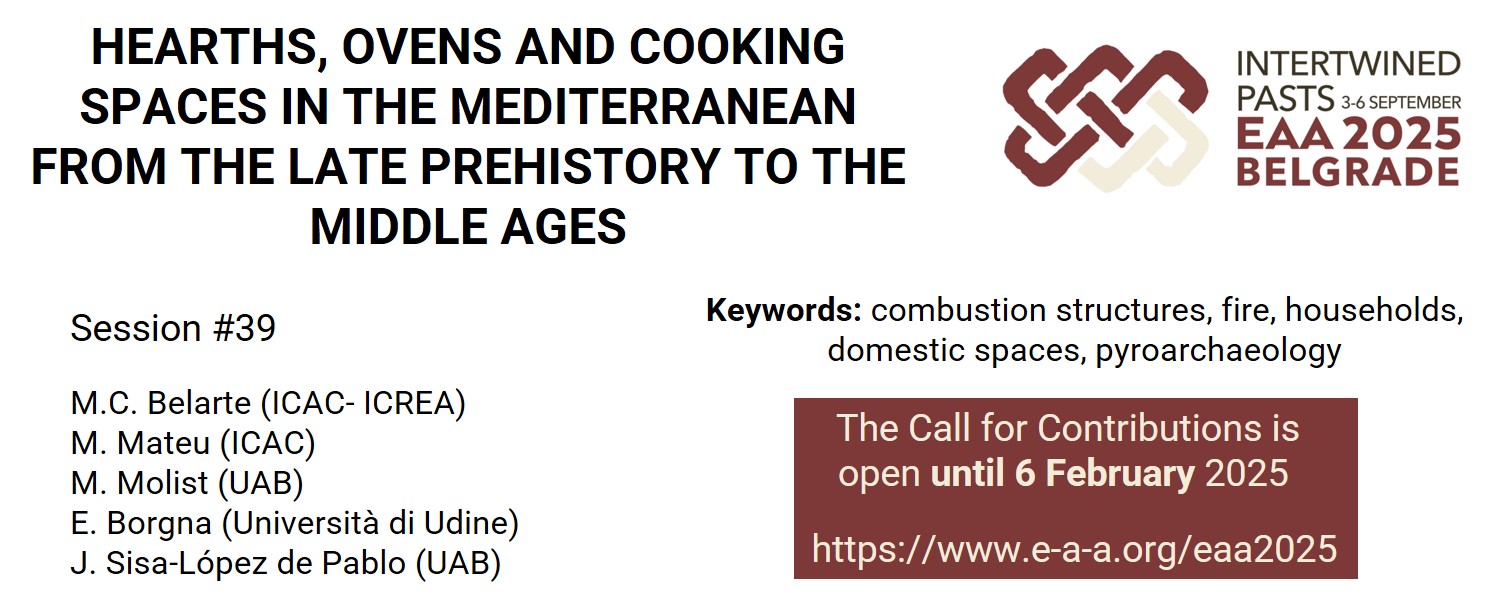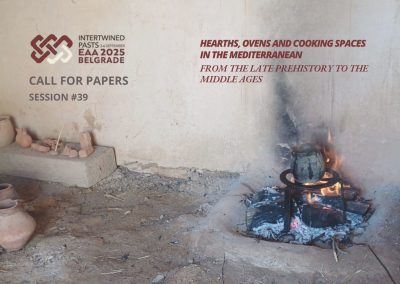
The ICAC is again participating in the annual congress of the European Association of Archaeologists (EAA), coordinating a session on pyroarchaeology.
The European Association of Archaeologists (EAA) will hold its 31st Annual Meeting this summer. The conference will take place in Belgrade, Serbia, from September 3 to 6, 2025, hosted by the Faculty of Philosophy in Belgrade.
The congress’s Scientific Committee has opened the call for proposals to complete session content and finalize the congress schedule. The deadline for submissions is February 6, 2025!
M. Carme Belarte and Marta Mateu (MIRMED) are co-organizing a session on pyroarchaeology.
The event is organized by the Faculty of Philosophy in Belgrade, in collaboration with the Institute Biosense, with the support of the National Museum of Serbia, the Serbian Institute of Archaeology, and the Belgrade City Museum.
Two members of the Protohistory team of the MIRMED research group, M. Carme Belarte and Marta Mateu, are co-organizing a session on combustion structures (hearths and ovens) as key elements in the domestic spaces of past societies. They are joined by Miquel Molist (UAB), E. Borgna (University of Udine), and J. Sisa-López de Pablo (UAB). This is Session #39: Hearths, ovens, and cooking spaces in the Mediterranean from Late Prehistory to the Middle Ages.
Session #39: Hearths, ovens, and cooking spaces in the Mediterranean from the Late Prehistory to the Middle Ages poster
- Deadline: February 6, 2025
- Info and terms: Call for contributions
- Contact: cbelarte@icac.es, mmateu@icac.cat
The 2025 edition of the congress addresses a wide variety of central topics in archaeology, structured into eight main areas:
- Material culture and artifacts: Exploration of objects created by humans, including their production, use, significance, and distribution, as well as their social, ritual, and economic contexts.
- Interconnected epistemologies: Reflection on integrating humanistic theories and experimental sciences in archaeology, highlighting plural approaches and the impact of data sciences.
- Methodologies in research, education, and communication: Development and application of innovative archaeological methods, from sampling strategies to artificial intelligence, with a special focus on digitalization and teaching.
- Archaeological practice and profession: Analysis of the challenges faced by archaeology as a discipline and profession, including social inequalities, activism, transnational mobility, and public engagement.
- Sciences applied to archaeology: Integration of scientific disciplines such as bioarchaeology, archaeometry, and remote sensing to open new horizons in the study of past societies.
- Archaeology, heritage, and museums: Research on the relationship between archaeology and cultural heritage, covering cross-disciplinary narratives and issues of policy, economy, and education.
- Climate change: The impact of climate change on archaeological heritage and strategies for adaptation, resilience, and mitigation based on the study of past societies.
- The Danube as an axis of cultural interaction: Study of regions connected by the Danube River, emphasizing its influence on cultural, economic, and social development from prehistory to the modern era.
These themes combine theoretical, methodological, and practical perspectives, emphasizing interdisciplinarity and the social relevance of archaeology.
About the Catalan Institute of Classical Archaeology (ICAC)
The Catalan Institute of Classical Archaeology (ICAC-CERCA) is a CERCA center established as a consortium in 2003 by the Government of Catalonia and the Rovira i Virgili University. It is a Catalan institution with an international scope, at the forefront of research and conservation of archaeological heritage. Its headquarters are in Tarragona, a city recognized as a UNESCO World Heritage Site in 2000. Its researchers work to understand the past, through the study of archaeological remains, and promote the preservation of the historical legacy. We are CERCA!
For more information, visit www.icac.cat.
